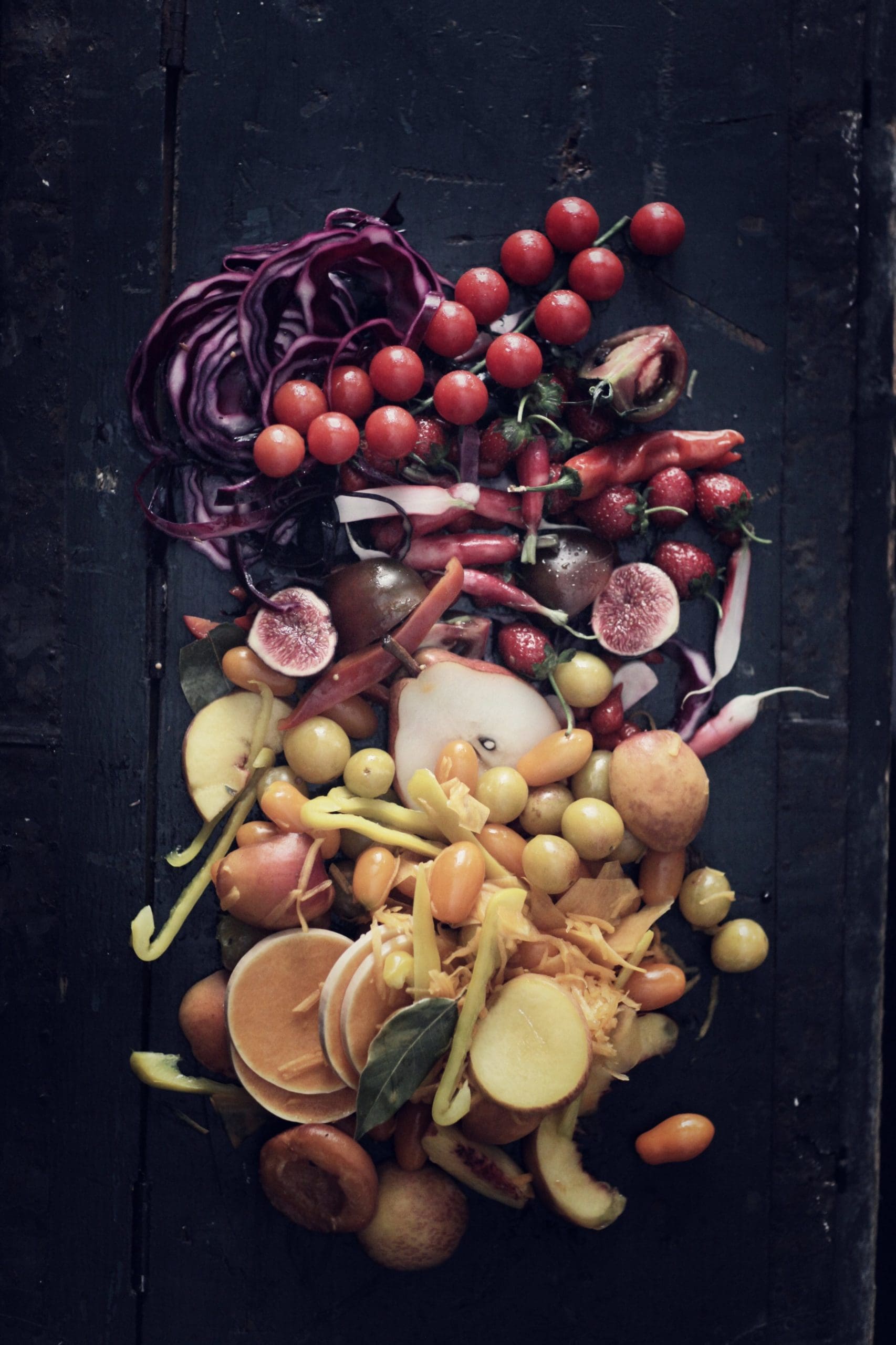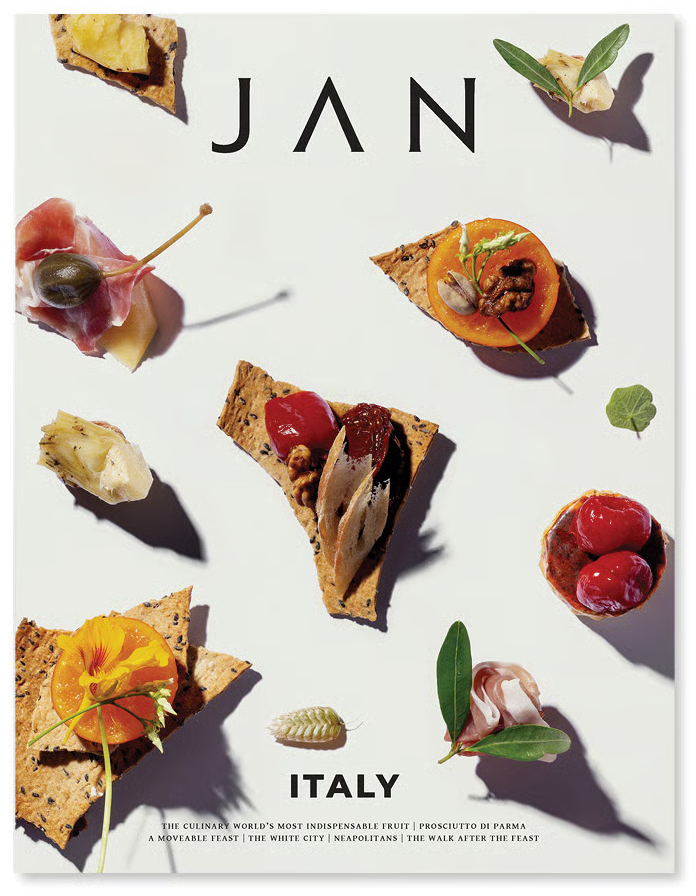FRUIT AND VEG STORAGE TIPS
A GUIDE TO MAKING YOUR INGREDIENTS LAST LONGER
Long before the cozy model of a mom and a dad, 2.5 kids, a white picket fence, and a dog and a cat, the human race had other dreams. We were nomads, either following our food or exploring unknown lands out of curiosity. But then we figured out how to stay put without going hungry; in other words, how to make our food last longer. Whether we are homebodies or natural-born explorers, making food last is central to our existence; and yet, even after all this time, we still have a trick or two to learn about keeping food fresher for longer.

Apples & Pears
- Apples are survivors! In summer, they generally keep for about a week at room temperature – and even longer in the fridge.
- Like bananas, they can release a fair share of ethylene, which means their friends and neighbours will ripen faster in their company, so store your apples separately.
- On the other hand, they’re great for teaming up with fruit and veg that need a nudge out the door to ripeness.
- Store your pears at room temperature until they’ve ripened fully. Once ripe, put them in the fridge to keep them for another few days.
Asparagus & Celery
- Asparagus will keep for more than a week if you store it at room temperature in a glass of water with the stems submerged, changing the water about three or four days in.
- Celery keeps quite well in the fridge, but like asparagus, it will keep for a week or more (depending on the season) in a glass of water.
Avocado
- Store your avocados at room temperature while ripening; transfer them to the fridge as soon as they start to soften.
- If you’ve rationed yourself to half an avo, store the other half in the fridge without removing the pit. It will keep longer.
Bananas
- Store bananas separately on a countertop while ripening, out of the sun, as the ethylene they release can cause neighbouring fruit and vegetables to ripen faster.
- To prevent bruising, store them in a banana hammock or banana tree.
- To slow down the ripening process, store your bananas in the fridge.
- By peeling and storing your bananas in the freezer, you’ve got a great base ingredient for a cold and creamy smoothie.
Basil
- Basil is a sensitive soul who shrivels up and shuffles off its mortal coil at the first sign of extreme heat or cold. For that reason, it’s not terribly optimistic about a fridge.
- It does, however, like an audience. So, similar to asparagus, it will keep much longer in a glass (or vase, depending on the size of the bunch) of water.
- Most other herbs will keep in the fridge for about a week.
Beets & Radishes
- Throwing out your beet greens can feel like a crime, as they’re really quite beautiful and packed full of deliciously earthy goodness to boot. But like any plant, they will continue to drain the root of its nourishment until both plant and root come to a timely end. The same goes for radishes.
- If you don’t intend to eat your beets or radishes right away, remove the greens and store them in the fridge. They can last up to 10 days in the crisper drawer.
Broccoli & Brussels Sprouts
- Broccoli and Brussels Sprouts are two of the more perishable vegetables, but if you keep them in the fridge wrapped in a breathable cloth, they will keep for about four days.
Cabbage & Cauliflower
- Don’t suffocate cabbage or cauliflower. They’re not fond of that. Instead, store them loosely in the crisper drawer.
Cherries, Berries & Figs
- These sweet-and-sour delights are very vulnerable to the passing of time; a plump blackberry today may resemble a mushy mess tomorrow.
- To get the most out of your cherries, berries and figs, eat them on the day you bring them home. Otherwise, keep them (uncrowded) in a glass container in the fridge.
Citrus
- While a couple of spots on the rind can give a citrus that “organic” look, it is most often acquired through poor cold storage conditions.
- Store your citrus at room temperature and it will keep for two weeks or more.
Cucumber
- We have a conundrum. Cucumber doesn’t like the cold, but most people prefer cold cucumber. To keep your cucumber for longer, store it outside the fridge at around 10 °
- Otherwise, do what we all do and keep it in the fridge for as long as it lasts.
Grapes
- Many grape-producing countries have begun to limit the use of pesticides on grapes, but if you encounter a bunch that forces you to catch your breath, soak it in a solution of 4 parts water and 1 part white vinegar for 20 minutes to remove the pesticides.
- Like cherries, berries and figs, grapes don’t last long; store them in the fridge for up to 5 days.
Leafy Greens
- Whether chard, spinach or kale, or butter, cos or romaine lettuce – all leafy greens can benefit from a good prep as soon as you bring them home.
- Cut them off their stems, thoroughly rinse and spin-dry them, and they’re ready to go to the fridge, where they will keep for about a week.
Mealies (Corn)
- Within a few hours of harvesting, mealies lose almost half of their sugar content, so storing them is not ideal.
- But if you’re not planning to eat them on the day of purchase, keep them in the fridge (in their husks) for no more than three days.
Mushrooms
- By nature, fungi turn funky quickly… but you can stall the process somewhat by keeping them in the fridge in a paper bag or sealed container.
- Crowding them can lead to bruising, which speeds up the oxidation process.
Onions & Shallots
- If you store your onions in the fridge, tell no one and relocate them without delay to a weatherworn box in the cupboard, creating the illusion that they’ve always been there. The fridge just robs them of all flavour and texture.
- Onions and shallots want nothing more than a cool dry place in the cupboard to while away their days until they get the chop and their first contact with a hot pan transforms your house into a home.
Potatoes & Sweet Potatoes
- Though confident in flavour, potatoes are easily influenced; store them separately from garlic and onions to keep them from absorbing neighbouring odours.
- When exposed to light, potatoes get tricked into thinking they are out in nature and encouraged to sprout proudly. Store them in a cupboard to help them forget such aspirations.
- The above applies equally to the sweet potato, although the sweet potato is less successful at mimicking other flavours while losing its own.
Stone Fruit
- Apricots, nectarines, peaches and plums are just some of the great joys of the summer season. But if ever there was a reminder to seize the moment, stone fruit is it. Once picked, they ripen in a flash, but will keep longer in the fridge.














